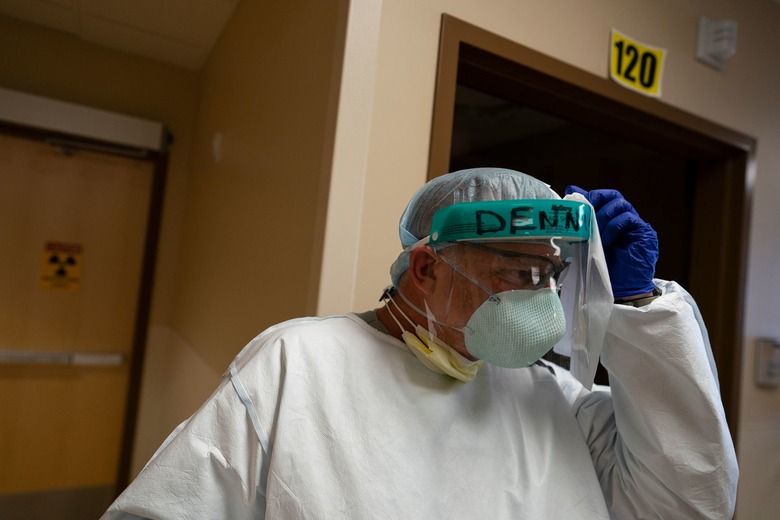Promising Coronavirus Studies Show That There's Hope For Long-Lasting Immunity
- Researchers studying the immune response of patients who have survived the novel coronavirus found evidence that can answer a few of our most pressing questions.
- The researchers identified the role of T cells in the immune response, and the early findings suggest there's reason to be hopeful for long-lasting COVID-19 immunity.
- The studies indicate that some people's immune systems may have been able to respond better to the new virus after previous interactions with the other four human coronaviruses that cause common colds.
- Visit BGR's homepage for more stories.
The novel coronavirus is here to stay, WHO told us earlier this week, echoing Dr. Fauci's remarks that there's little chance of eradicating SARS-CoV-2. In other words, COVID-19 is expected to become endemic, a brand new infectious disease that we'll have to learn how to live with. The virus is deadlier than the flu right now because there are no cures, although tremendous progress has been made in the past couple of months. Doctors have experimented with several therapies that have shown promising results in studies, and researchers are coming up with a novel class of drugs that aim to prevent COVID-19 complications.
All of these efforts will help us treat the disease more effectively than before, and, hopefully, reduce the risk of death. The ultimate goal is for the entire world to receive vaccinations, a process that could take years to complete, assuming the vaccines are even effective. Once a large percentage of the population has been immunized, either through direct exposure to COVID-19 or vaccines, we'll reach the herd immunity you keep hearing about.
But how good is COVID-19 immunity? A couple of brand new studies deliver promising results, suggesting that we may get long-term immunity when all is said and done.
The virus has been in humans for around six months, which isn't enough to measure the immunity that results from an infection. If immunity lasts only a few years, then vaccines will bring only limited protections, and we'll have to make new ones down the road. On the other hand, long-lasting immunity would mean that a single inoculation would be enough for long-term protection — the same result might be obtained after surviving the disease.
Researchers have started the study of a particular type of cell that's the marker of long-term immunity, ScienceMag reports. These are the killer T cells that can target and destroy the infected cells.
Two teams were able to prove that infected people have such T cells that target the virus and can help them recover. Moreover, some of the patients who have not been infected with SARS-CoV-2 might already have T cell protection from previous infections with one of the other four human coronaviruses that we already know about, as they cause common colds.
Immunologists from the La Jolla Institute for Immunology published a study in Cell that says observed COVID-19 survivors carried helper T cells (CD4) that recognized the SARS-CoV-2 protein that lets the virus bind to human cells and infiltrate them. Helper T cells activate B cells, which then produce antibodies. But they also featured T cells that react to other SARS-CoV-2 proteins. 70% of convalescent patients also had virus-specific killer T cells (CD8).
The team also noted that half of stored blood samples collected between 2015 and 2018 contained helper T cells that detected the SARS-CoV-2 virus.
Separately, work from the German Charité University Hospital published in pre-peer-review form on medRxiv paints a similar picture. Andreas Thiel and his team identified T cells targeting the spike protein in 15 out of the observed 18 patients. Then they analyzed blood from 68 uninfected people and found that 34% already have T cells that can recognize SARS-CoV-2.
Researchers believe that past infection with one of the milder human coronaviruses that preceded COVID-19 may be responsible for a strong immune response that also works against the novel virus.
These early results are very promising, but not definitive, and more research is required. It's still unclear how long immunization will last, and whether reinfection is possible in the future. But the data indicates that one reason why "a large chunk of the population may be able to deal with the virus is that we may have some small residual immunity from our exposure to common cold viruses," according to University of Iowa immunologist Steven Varga.
"These papers are really helpful because they start to define the T cell component of the immune response," virologist Angela Rasmussen of Columbia University told ScienceMag. The strong immune responses "bode well for the development of long-term protective immunity."
Future research could also help researchers carve additional paths when it comes to vaccine candidates. Most of the current drugs target the spike protein of the virus. But if the T cells can react to other proteins of SARS-CoV-2, then different vaccines could be developed in the future. If further confirmed by more data, these findings may affect future therapy protocols for COVID-19, as well as testing and prevention measures.
An explanation of the B and T cell involved in immune responses follows below, more commonly known as lymphocytes or white blood cells:
